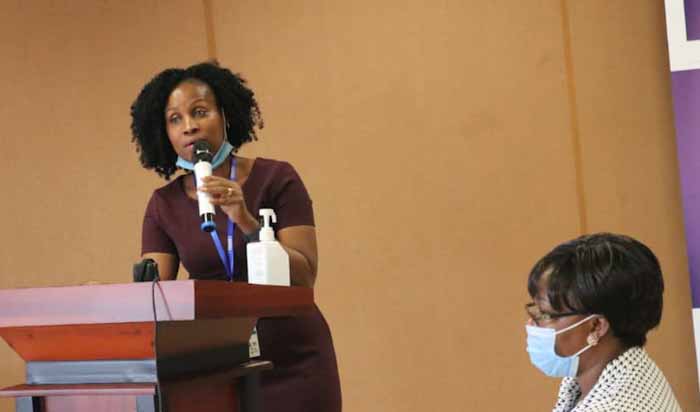Public health experts have called for tailored COVID-19 prevention measures that fit the social economic conditions of the people in different communities other than promoting a one-fits-all standard operating procedures.
Launching the preliminary findings of a multinational study on Refugee Lived Experiences, Compliance and thinking in regard to COVID19, researchers say that enforcement of one size fits all or Standard Operating Procedures especially in crowded places like refugee settlements has proved problematic.
They therefore called for development of community specific measures that suit the conditions of the residents.
Dr. Denis Muhangi who is part of the investigating team from Makerere University, explains that the ongoing research in Knowledge, adherence and the lived experience of refugees in Covid-19 indicates that whereas refugees would want to adhere to the set COVID19 guidelines some of which are not practical due to social, cultural and economic limitations.
“You know government had promised free facemasks, now in some of the sites that we went to, the free masks had not reached there so people were not wearing masks because they were still waiting for masks from government, they were not willing to touch their money and other didn’t have money to buy their own masks,” said Dr. Muhangi.
Muhangi adds that in slums like Kisenyi, a prominent refugee settlement, the workplaces are congested, so asking the people to practice social distancing was a huge challenge.
But even in other refugee settlements in Kyakka, Adjumani, the settlements are sort of clustered, the refugees are given small pieces of land and they are next to each other, so physical and social distancing we found it was not really practical.
The Principle investigator who is also a lecturer at the School of Public Health, Makerere University, Dr. Gloria Seruwagi points out that these limiting factors may also apply to the general public which calls for the policy makers to consider re-examination of these Standards Operating Procedures.
Seruwagi says that refugee communities are already facing multiple challenges when it comes to Water and Sanitation, so COVID19 only made it a bit worse.
According to preliminary findings, some of measures were not practical for instance, the Muslim community was not complying to use of sanitizers because of the alcoholic content. Social Distance was also not practical since most of the refugee communities stay in crowded places. In some refugee settlement there were 6 people staying in one small room so compliance is difficult.
Researchers further points that Hand washing is the most effective and most commonly practiced across the board compared to sanitizers and social distance.
There was not so much compliance in wearing masks instead a lot of “chin-masking” was witnessed with those who had them just wearing them on chins and not using them to cover up.
Dr. Seruwagi mentions that some other risky behaviors were observed for example borrowing masks at places where it was mandatory (health facilities, offices) or when they saw authorizes and enforcers coming








